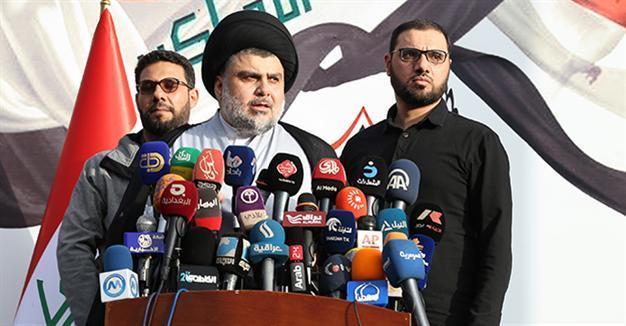Al-Sadr appeals for solution to Iraq's political crisis
BAGHDAD - Associated Press

AA photo
An influential Iraqi Shiite cleric on April 21 called on the United Nations and the Organization of Islamic Cooperation to help find a solution to the country's simmering political crisis "even through holding early elections."Muqtada al-Sadr's statement came a day after lawmakers failed to hold a session to vote on whether to keep or oust the parliament speaker, Salim al-Jabouri, threatening to prolong Iraq's paralyzing political crisis amid the fight against the Islamic State of Iraq and the Levant (ISIL) group that controls key areas in country's north and west.
Al-Sadr ordered Sadrist lawmakers to withdraw from a parliament sit-in that demands the country's top leadership - parliament speaker, prime minister and president - step down. But al-Sadr called on his followers to continue rallying in Bagdad's Tahrir Square to pressure the parliament to vote on a new government after a recent Cabinet reshuffle.
"We call upon the Organization of Islamic Cooperation and the United Nations to interfere to get the Iraqi people out of their ordeal and to correct the political process even through holding early elections," al-Sadr said in a handwritten statement issued online.
It is still unclear how the withdrawal of Sadrist lawmakers will affect the parliament sit-in which was started last week by dozens of lawmakers following delay on the vote on the Cabinet reshuffle. On April 21, they chose eldest lawmaker, Adnan al-Janabi, as an interim speaker, but the move was rejected by the other camp, which argues the move was illegal because the needed quorum was not achieved.
The session on April 19 was supposed to vote on whether or not to remove al-Jabouri, but it was adjourned when major political blocks walked away because they objected to al-Janabi presiding over the session.
Iraq is weathering its worst crisis in years with the Sunni extremist ISIL group still controlling key areas in the country's north and west, including the second-largest city of Mosul. The country is also undergoing an acute economic crisis due to plummeting oil prices on the international market.
















